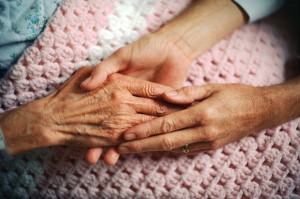 On June 15, 2012, the Canadian province of British Columbia Supreme Court struck down a law prohibiting euthanasia and assisted suicide. It won’t be long before the other provinces follow suit. My country is on the same slippery slope as Switzerland, Netherlands, Belgium, Oregon and Washington.
On June 15, 2012, the Canadian province of British Columbia Supreme Court struck down a law prohibiting euthanasia and assisted suicide. It won’t be long before the other provinces follow suit. My country is on the same slippery slope as Switzerland, Netherlands, Belgium, Oregon and Washington.
Within minutes of the law being struck down, my Facebook was full of petitions, blog posts, commentaries and calls for protests. All of these actions are good, but in my opinion, they are not enough. It’s all well and good to stand up for life and the dignity of the human person, but what are you (personally) and we (collectively) doing to lessen the suffering of the terminally ill, the disabled, the chronically in pain, the lonely and the mentally ill?
If you were to spend a few days with me as I visit my patients or hold clinics, you would meet the people most likely to buy into the “dying with dignity” mentality.
- the young, mentally ill gentleman who needs constant reassurance and explanations so that he remains calm
- the elderly, painfully disabled lady diagnosed with a degenerative bone disease who has told me more than once that she wants to die
- the WWII veteran with PTSD and his war bride who are struggling to cope daily
- the husband of an ailing wife puts all her needs first and is slowly making himself sick
- my patients with Alzheimer’s and dementia
- my patients with chronic diseases
- my patients in acute pain
- palliative care patients
- the lonely widows and widowers
I can see how people lose hope. I can see how suffering wears a person down so much that they feel they can’t go on. Death becomes attractive when a person despairs.
Some people argue that it is the responsibility of the healthcare system – doctors, nurses, therapists, social workers, etc. – to care for the most vulnerable. True. But not true enough. Even the most caring physician, nurse or support worker is not enough to comfort someone whose physical, mental and emotional suffering is too great to handle.
What more can we do, we who cry out against euthanasia and assisted suicide? Here, from my perspective as a pro-life nurse and a person who cares, are some suggestions:
- lobby for, demand, donate to research that improves the quality of palliative care and pain management
- organize church and/or community groups that offer help to those who need it: driving, visiting, light chores, support, friendship
- join volunteer respite care associations that help families dealing with death and dying
- share meals and a coffee often with your elderly neighbours
- volunteer in nursing homes and hospices
We are created to be compassionate and caring, a light shining in the darkness, fully human. We are our brother’s keeper. We are the Good Samaritan, Simon of Cyrene and Veronica.
We’ve prayed. We’ve signed petitions, written politicians, “liked” Facebook posts. Now it’s time to “do the next right thing,” as a friend once said in a homily. Get involved, even as you continue to pray. Do what you can to make life worth living for those whose suffering is unimaginable and, yes, frightening to the rest of us. Don’t wait for someone else to do it.



